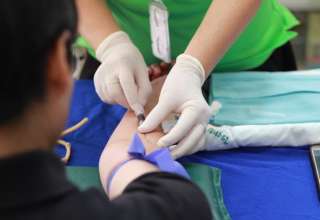The medical field has seemingly endless career possibilities, and it can be both exciting and confusing to consider them all. There are so many different opportunities, as there can never be too many people helping out in healthcare. Whether you want to be a doctor, handle patient intake information, or become a phlebotomist, you’ll be sure to find the right career opportunity for you. Lately, there has been an increased inclination towards joining the medical field as a phlebotomist as only few states require certification for phlebotomists, and moreover, there are various online phlebotomy courses as well. It’s also important to consider the variety of medical facilities, as they range from high-volume hospitals to local family physician offices.
Regardless of where you work in the medical field, certain training is required by everyone. For example, everyone in the medical field is required to have CPR training, and a qualified first aid certification. Online training makes these certifications easier, as you can move at your own pace throughout these online courses. If you’re looking at how to get your certifications by attending an online course, check out the training that CPRAED has to offer. This renowned company offers the required CPR first aid online courses that all healthcare professionals need in order to stay up to date in their field.
1. Doctor
When you think of healthcare professionals, you’re probably thinking of doctors. Nearly every medical office has a doctor present at all times, as they are essential in overseeing patient care and making ultimate decisions regarding treatments. If you believe this may be the right medical career for you, it’s important to understand the requirements for becoming a doctor.
Doctors must go through years of schooling and training prior to receiving their degree. There are two types of degree options that a doctor can choose from: either a Doctor of Medicine (M.D.) or an Osteopathic Doctor (D.O.). These degrees have slightly different ideologies but essentially allow graduates to be respectable doctors. Both types of medical schools require extensive knowledge of medical terminology and laboratory procedures, which are gained through at least four years of a biology degree at an accredited undergraduate university, followed by four more years of medical school and additional years working at a residency.
Regardless of the type of degree you choose, all doctors must have first aid certification and CPR training, whether they obtain that in person or by way of an online CPR course, like the one offered by CPRAED.
2. Physician’s Assistant
If you want to become a doctor but the requirements of medical school coursework and a physician’s schedule are too much for you, then becoming a physician’s assistant (PA) could be your perfect career. PAs share many responsibilities with doctors regarding patient care, treatments, and prescribing medications. PAs are widely recognized in the United States, and a majority of accredited universities offer special PA programs for their students. PAs can choose either to specialize in certain types of medicine or to practice in a broader area. These medical professionals are a vital aspect of the medical field and offer a great deal to their respective medical offices.
3. Medical Secretary
Medical secretaries are crucial to any medical office, as it’s their duty to collect patient information, contact insurance companies, bill patients, and handle patients’ medical reports. A medical secretary assists in keeping the office running smoothly by making phone calls, providing customer service, and scheduling appointments. Without a medical administrative assistant, healthcare facilities would not run as efficiently. If you’re interested in becoming a medical secretary, ASPIRA City College offers a great medical secretary program. If you believe that the medical secretary route is the way you’d like to go in your medical career journey, programs like the one that ASPIRA has to offer will help make you valuable to employers of medical secretaries and provide you with an abundance of course materials that can help you become the best medical secretary possible.
4. Nurse
Nurses are another healthcare professional that can be found in every healthcare facility throughout the United States. A nurse assists the physicians in standard patient care and is educated in reading medical charts and administering first aid in the event of a patient experiencing cardiac arrest. Nurses, like doctors, have received first aid training and a CPR certificate. In order to become a nurse, one must attend nursing school. Becoming a nurse is a great career choice as there is room to move up. Registered nurses (RN’s) can eventually go back to school to become a nurse practitioner (NP), a career that shares similar responsibilities with PAs.
5. Emergency Medical Technician
Another important field within the medical career is an emergency medical technician (EMT). EMTs have extensive first aid training and are well-versed in CPR, as they are likely the first to respond to the scene of an emergency. EMTs are an essential part of the medical field as they help patients reach the hospital in the event of an emergency, and they must administer first aid throughout the duration of the ambulance ride—often saving the patient’s life. One must go through a certification process in order to become a recognized EMT.












